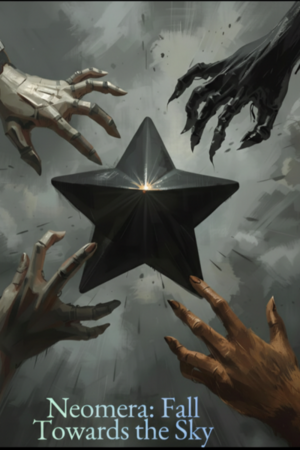Chapter 11:
Experiment 8: The Elephant in the Room
An Experimental Collection of The Absurd
An air of dread hangs over the indoor ice-cream parlour, where Dabagorabo and his friend Mamama exist. Dabagorabo sinks his lips into the depths of a cup. Mamama does the same.
“Tastes like lemon,” Dabagorabo says.
“Tastes like water,” Mamama says.
They’re both wrong. It takes like nothing. Nothing is in the cup. In fact, it doesn’t taste of nothing: it tastes of cup.
“Tastes like,” Dabagorabo says.
“Tastes like,” Mamama says.
An elephant walks in. It sits on a stool big enough for humans, like Dabagorabo and Mamama, but too small for elephants like this elephant.
“Like,” Dabagorabo says.
“Like,” Mamama says.
An elephant sits next to the two, and it asks for a cup of something.
“Mamama, Mammymoo, Mamamoomooo, have you eaten a lemon before?”
“I haven’t.”
The elephant has forgotten something. It asks someone behind a counter for a straw.
“I haven’t either.”
Mamama downs his empty cup. It’s refreshing. The best drink ever. Tastes like water. He’s drooling. He’ll never forget this cup. He’ll ask to take the cup home as a souvenir. He’ll also ask for a picture of him holding the cup. He’ll frame it. His kids are going to love this. On the way home, he’ll buy a pickle. The supermarket has plenty of pickles. He’ll ask if they sell lawnmowers. He’s never seen a lawnmower before. He bets someone at the supermarket will teach him how they work. He’ll make sure to pay whoever teaches him £1 million. He loves water.
The elephant sucks its straw with its trunk. Punctured into the side of said straw is a hole. But no liquid gushes out. Air gushes out. So, when the elephant sucks, it just makes a loud snorting sound.
The straw crumples in on itself. Air sprays out; meaning, the straw is empty; meaning, the cup is empty; meaning, the elephant is sucking emptiness.
“Do you think the supermarket sells lawnmowers?”
“Yes,” Dabagorabo says before thinking of an answer.
He heads home in an hour and ask his wife what a lawnmower is. She’s not entirely sure either, but a friend of hers said it has something to do with grass. She wasn’t paying attention to her friend and doesn’t really care about lawnmowers, and neither does Dabagorabo. But it’s troubling his mind, so he wants to know what it is anyway.
He must find out, or it will be a restless night.
“Have you ever drunk water?” Mamama asks.
“This is my first time, Mammymoo,” Dabagorabo says.
“But your drink tastes like lemon.”
“It does.”
The elephant passes out and knocks over its cup. The cup’s contents go everywhere. Nothing. Nothing goes everywhere. Nothing flows down the elephant’s table. It runs down its stool. The floor is wet with nothing. Someone could then slip on nothing.
“Mamamamoomoo, I need to leave.”
“Why?”
“I must know what a lawnmower is.”
Dobagorabo, as he leaves, slips on nothing.
His wife would collect him after Mamama calls her, thinking Dobagorabo is about to die on the floor, despite him still breathing and being conscious. When his wife sees what caused the accident, she maybe makes a sound out of anger. It could be a loud sound. An angry, loud sound. Certainly, fury escapes her in the same manner as nothing escapes from a cup. This day, henceforth, Dobagorabo would never be allowed near nothing again.
Mamama also, due to his friend’s accident—in which Dobagorabo’s wife rushes Dobagorabo to hospital even though he’s completely fine and uninjured—doesn’t go to the supermarket. He doesn’t buy his kids a pickle, and he doesn’t find out how to work a lawnmower.
Additionally, Dobagorabo doesn’t find out what a lawnmower is. He, in fact, finds out nothing. Actually, he finds out he finds out nothing. He finds out that night. He finds out again in the morning. He finds out again and again the next night and the next morning and the night after that and the morning after that and after that after that and after that after that.
He sleeps the night; he wakes up at day; he showers; he eats; he dresses; he walks; he talks; he laughs; he cries; he sings; he dies. At some point, one after the other, or two after the other—singing whilst walking or laughing whilst in the shower or eating whilst he cries—or three after the other, showering whilst eating whilst speaking or etcetera, he acts as a human acts: he does things. And, at all points, he exists.




Please sign in to leave a comment.